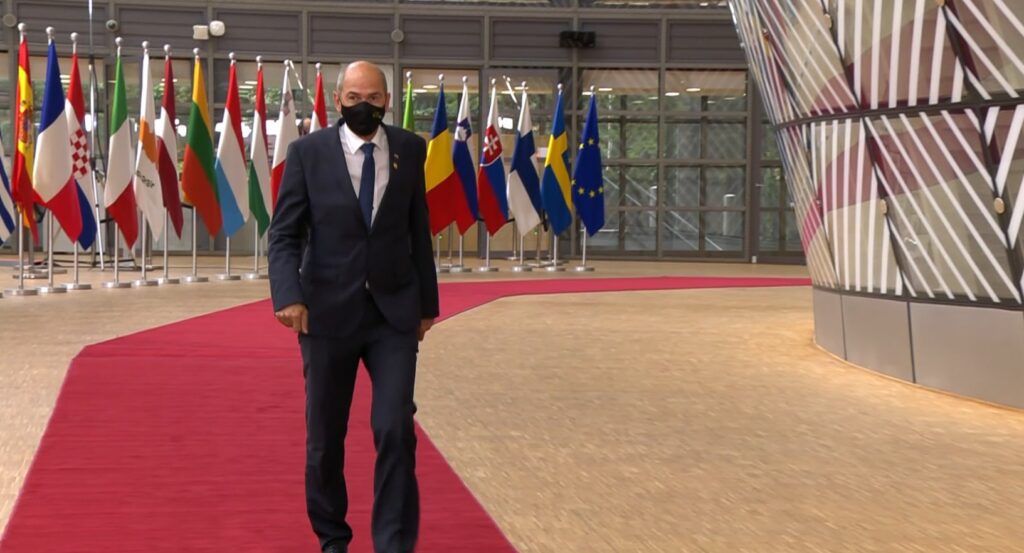Arriving at Wednesday’s extraordinary session of the European Council, Prime Minister Janez Janša said that in the two days that lay ahead, he expected the European leaders to be able to express solidarity with Greece and Cyprus and add the necessary practical steps to this solidarity in the near future. “I also believe that we will be able to express solidarity with the citizens of Belarus, support their democratic aspirations and efforts, and work to protect ourselves from any kind of repression and take all necessary measures.” He also expected to be able to achieve European unity in redefining the policies towards China.
On Wednesday and Thursday, Prime Minister Janez Janša attended an extraordinary session of the European Council in Brussels. What was on the agenda for the session was a discussion on the single market, industrial policies and digital transformation, as well as on external relations, especially with Turkey and China. The summit will also be an opportunity to review the situation regarding the COVID-19 pandemic.
Arriving at Wednesday’s extraordinary session of the European Council, Prime Minister Janez Janša said that he expected the European leaders of today and tomorrow to be able to express solidarity with Greece and Cyprus and add the necessary practical steps to this solidarity in the near future. “I also believe that we will be able to express solidarity with the citizens of Belarus, support their democratic aspirations and efforts, and work to protect ourselves from any kind of repression and take all necessary measures,” the Prime Minister continued, adding that we need to remember that the European Union has the so-called soft power and economic sanctions available as measures to use. “If these measures are chosen correctly and implemented at the right time, they can have a very strong effect,” Prime Minister Janša believes.
Janša also expects that the Member States will be able to achieve European unity in redefining policies towards China, and that, based on the work that is impressive and has already been done by the European Commission, they will separate commercial interest from strategic interest. He also expects that, based on the experience from spring, the EU will, in the shortest possible time and in practice, be able to provide all the necessary capacities to enable Europe to act more coherently, decisively, more effectively; to protect its own citizens, its own interests, and to allocate production and all other capacities to the domestic territory for this purpose, in the possible event of a future crisis.
He also pointed out that it would also be necessary to very clearly define the list of strategic products, from artificial intelligence to communications to critical medical or personal protective equipment, for which Europe absolutely cannot depend on a second or third party. “We have some rather difficult decisions ahead of us, and I believe that the European Council will be able to cope with them this time,” Prime Minister Janez Janša added.
Sara Kovač


